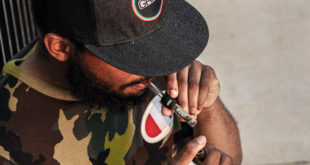
In a pursuit to stop marijuana legalization in Arizona, a drug war task force has donated tens of thousands of dollars collected from the civil asset forfeiture program in order to fight marijuana legalization in Arizona via propaganda.
An investigative report has revealed that Partners Against Narcotics Trafficking (PANT), a law enforcement organization designed to catch drug offenders, recently provided a check for $50,000 to MATFORCE, a group combating substance abuse. This collaboration to fight marijuana legalization in Arizona with public funds took place shortly after the Marijuana Policy Project (MPP) declared it was going to help create a ballot initiative in 2016 to legalize recreational marijuana for adult use in Arizona.
It also appears that additional public funding will probably be used to fight marijuana legalization in Arizona. Last week, Arizona Attorney General Mark Brnovich released a decision in regards to a question posed by Yavapai County Attorney Sheila Polk (pictured), who is a leading board member for both PANT and MATFORCE and the culprit behind the $50,000 donation that supposedly went towards educating the public on the alleged dangers of marijuana, which essentially asked whether public finances could be used to protest marijuana.
Brnovich wrote: “To the extent you use public resources to communicate, your efforts may lawfully continue… so long as they do not unambiguously urge the electorate to cast a vote for or against the [marijuana] measure.” Basically, Brnovich is allowing the use of public resources to fight the marijuana ballot measure.
The Campaign to Regulate Marijuana Like Alcohol, a pro-marijuana organization in Arizona, argues that money generated from state and local taxes should not be utilized by public officials to fund propaganda tactics.
Legal experts, like attorney Angela Poliquin, believe that allowing the use of public resources to influence voter response spawns “political mischief,” a practice that is not only wrong, but also a detriment to the concept of democracy. In other words, governments should not be permitted to grease the wheels of organizations in an effort to control the opinion of the citizens for which they serve.
Anti-legalization groups should be held to the same financial trials and tribulations as everyone else when pushing an agenda, and public funds should be off-limits to those who either support or oppose a particular voter initiative. Governments should not be subliminally manipulating their citizens.
 AZ Marijuana Arizona Marijuana Info
AZ Marijuana Arizona Marijuana Info






